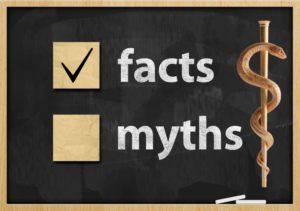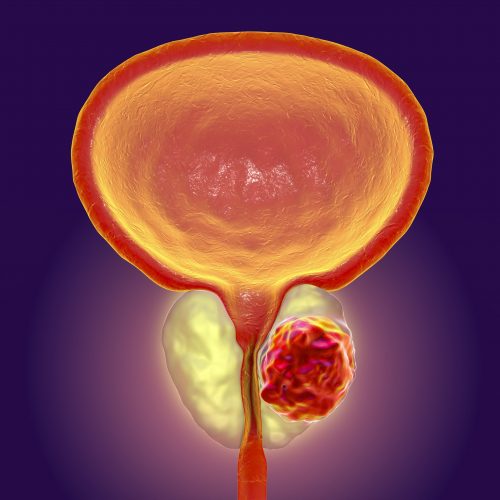Does Testosterone Cause Cancer? Replacement therapy does not increase a man’s risk of developing prostate cancer, according to a recent study. Some studies, however, have found a higher risk of prostate cancer among men with low testosterone levels.
Additionally, testosterone can stimulate the growth of prostate cancer in men already diagnosed with the condition. As for colon cancer, recent studies suggest that testosterone may promote colorectal adenoma formation, potentially contributing to the higher male susceptibility to colorectal cancer.
It is essential to weigh the risks and benefits of testosterone therapy carefully, considering factors such as cardiovascular disease and the development of breast tissue, which can increase the risk of male breast cancer. Overall, further research is needed to understand the relationship between testosterone and cancer fully.
Understanding Testosterone
Recent studies have challenged the link between testosterone and prostate cancer, with some findings suggesting a higher risk of prostate cancer among men with low testosterone levels. However, testosterone replacement therapy does not increase the risk of developing prostate cancer, according to a recent study.
Taking testosterone for life is generally safe, but it’s essential to consult with a healthcare provider.
Understanding Testosterone Testosterone is a vital hormone in the human body, primarily known for influencing male characteristics such as muscle mass, bone density, and sexual function. However, it is also present in smaller amounts in females. A proper understanding of the functions and natural production of testosterone is crucial in addressing any concerns about its potential link to cancer.
Functions Of Testosterone
Testosterone plays a pivotal role in numerous bodily functions. It contributes to developing male reproductive tissues and promotes secondary sexual characteristics, including deepening the voice and facial hair growth. Furthermore, it aids in maintaining muscle strength and mass, bone density, and the production of red blood cells. Testosterone influences mood and cognitive functions, such as libido and overall energy levels.
Natural Production In The Body
The testes are responsible for most testosterone production in men, while the adrenal glands contribute a smaller amount in both men and women. Testosterone production is regulated by the hypothalamus and pituitary gland, which signal the testes to release the hormone. Upon secretion, a significant portion of testosterone circulates bound to proteins, while a smaller portion remains unbound and is biologically active. By understanding testosterone’s essential functions and natural production, we can better understand how it interacts with the body and its potential impacts on health and disease.

Credit: www.centerforurologiccare.com
Role Of Testosterone In Cancer
Testosterone, the primary male sex hormone, has been a topic of debate when it comes to its influence on cancer development in men. Understanding the role of testosterone in cancer is essential for exploring its potential impact on different types of cancer. This will help in discerning the hypotheses and research findings that surround the link between testosterone and cancer.
Hypotheses And Research Findings
Studies have sparked hypotheses about the potential role of testosterone in the development and progression of cancer. Research findings indicate a complex relationship between testosterone and cancer, with the hormone exhibiting both protective and stimulatory effects on cancer cells.
Impact On Different Types Of Cancer
The impact of testosterone on various types of cancer is a multifaceted aspect that requires thorough examination. It is crucial to delve into how testosterone levels may influence the development and progression of prostate, breast, and colorectal cancers, among others.
Studies And Scientific Evidence
When it comes to whether testosterone “Causes cancer.” causes cancer, it is essential to examine the studies and scientific evidence available. Researchers have gained valuable insights into this topic through clinical trials and meta-analyses.
Clinical Trials
In clinical trials, researchers conduct experiments to evaluate the effects of testosterone on cancer development. These trials involve participants who are monitored over a specific period.
One such study published by the Prostate Cancer Research Institute aimed to investigate the relationship between testosterone replacement therapy and prostate cancer. The results of the study revealed that testosterone treatment does not increase a man’s risk of developing prostate cancer.
Another clinical trial conducted by MD Anderson Cancer Center explored the association between testosterone supplements and prostate cancer. The study concluded that there is no evidence to suggest a causative link between testosterone and prostate cancer.
Meta-analyses
Meta-analyses involve systematically reviewing and analyzing multiple studies on a specific topic. By pooling data from various studies, researchers can obtain a comprehensive understanding of testosterone’s potential impact on cancer.
A meta-analysis published on Healthline examined the connection between testosterone levels and prostate cancer. Contradicting previous beliefs, the analysis found a higher risk of prostate cancer among men with low testosterone levels, challenging the long-standing assumption that high testosterone is associated with increased risk.
In addition to prostate cancer, a different meta-analysis conducted by researchers explored the link between testosterone and colon cancer. The analysis suggested that testosterone may promote colorectal adenoma formation, which may explain the observed higher male susceptibility to colorectal cancer.
Conclusion
Based on clinical trials and meta-analyses, the current scientific evidence does not support the notion that testosterone causes cancer, particularly prostate cancer. While previous studies have raised concerns about testosterone’s potential role in cancer development, recent research has challenged these findings. However, it is essential to consult with a healthcare professional before undergoing any testosterone therapy or making significant changes to a treatment plan.

Credit: themenshealthclinic.co.uk
Testosterone Replacement Therapy
Recent studies have shown that there is no direct link between testosterone replacement therapy and an increased risk of developing prostate cancer. While some earlier research suggested a potential connection, current findings indicate that testosterone treatment does not elevate the chances of prostate cancer in men.
Benefits And Risks
Testosterone replacement therapy improves libido, muscle mass, and bone density benefits.
However, there are risks associated with testosterone replacement therapy. Excessive testosterone levels can convert to estrogen, leading to potential risks like blood clots and increased breast tissue development.
Controversies And Debates
- There have been ongoing controversies and debates surrounding the potential link between testosterone replacement therapy and cancer.
- Research has yielded conflicting results on whether testosterone replacement therapy affects the risk of prostate cancer.
Studies have shown contradicting findings regarding the connection between testosterone levels and the development of prostate cancer. Some suggest a higher risk in men with low testosterone levels, while others refute this claim.
Furthermore, recent studies have also explored the potential role of testosterone in promoting colorectal adenoma formation, which raises questions about its influence on colon cancer susceptibility.
It is crucial for individuals considering testosterone replacement therapy to weigh the benefits against the associated risks, especially concerning their health factors and medical history.
Consulting with a healthcare provider and discussing the potential implications of testosterone therapy can help individuals make informed decisions about their treatment.
Preventive Measures
While the link between testosterone and cancer is still a topic of ongoing research, various preventive measures can be taken to minimize potential risks and promote overall well-being.
Lifestyle Choices
Lifestyle choices play a significant role in overall health and can impact the potential risk of developing cancer. A healthy diet of fruits, vegetables, and whole grains can reduce cancer risk. Regular physical activity and maintaining a healthy weight are essential for cancer prevention.
Screening And Monitoring
Regular screening and monitoring are crucial for early detection and intervention. Routine health check-ups and specific cancer-related screenings can aid in identifying any potential concerns at an early stage, allowing for timely medical attention and treatment if necessary.
For individuals undergoing testosterone replacement therapy, it is essential to work closely with healthcare providers to monitor testosterone levels and assess any potential adverse effects regularly. Open communication and proactive discussions with healthcare professionals can ensure that any emerging issues are promptly addressed.
.jpg)
Credit: www.ogdenclinic.com
Frequently Asked Questions Of Does Testosterone Cause Cancer
Is There A Risk Of Cancer With Testosterone?
Testosterone treatment does not increase the risk of developing prostate cancer, according to recent study findings.
Is It Safe To Take Testosterone For Life?
Testosterone replacement therapy does not increase the risk of developing prostate cancer. However, long-term use of testosterone has been associated with a higher risk of cardiovascular disease. It is essential to consult with a healthcare professional to assess the risks and benefits before considering testosterone therapy for life.
Can Testosterone Levels Cause Prostate Cancer?
Research has shown no clear link between testosterone levels and prostate cancer risk. Some studies have even found a higher risk among men with low testosterone levels. Furthermore, testosterone replacement therapy doesn’t seem to heighten the risk of prostate cancer.
Can Testosterone Cause Colon Cancer?
Testosterone replacement therapy does not increase the risk of prostate cancer, as per recent studies. There is no clear evidence linking testosterone to colon cancer.
Conclusion
Testosterone replacement therapy has been a topic of concern when it comes to its potential link to cancer, particularly prostate cancer. However, recent studies have shown that there is no significant evidence to suggest that testosterone treatment increases the risk of developing prostate cancer.
Some studies have even contradicted this idea, finding a higher risk of prostate cancer among men with low testosterone levels. It is essential to consider these findings before making any assumptions about the relationship between testosterone and cancer.
Always consult with a medical professional for personalized advice and guidance.






